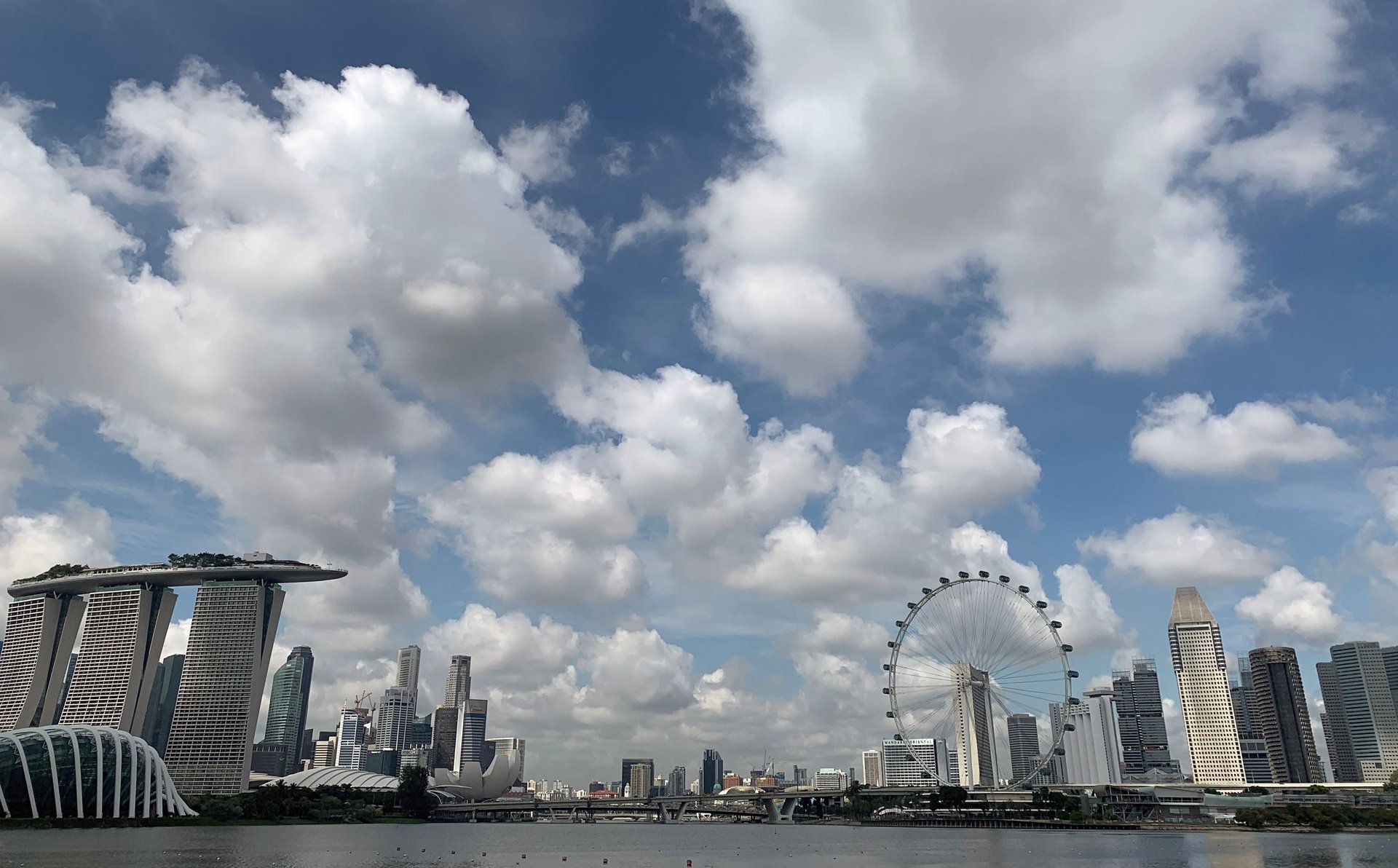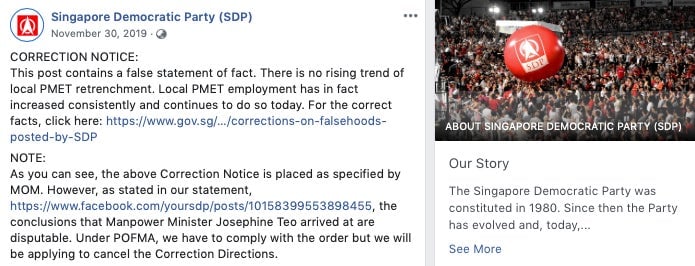Singapore’s fake news law is facing its first real challenge in court
A controversial new law meant to combat “fake news” online but widely criticized for granting the Singaporean government sweeping powers to choke dissent is coming up for a legal challenge tomorrow (Jan. 16).


A controversial new law meant to combat “fake news” online but widely criticized for granting the Singaporean government sweeping powers to choke dissent is coming up for a legal challenge tomorrow (Jan. 16).
The law, called the Protection from Online Falsehoods and Manipulation Act (POFMA), requires individuals or platforms to issue correction notices in cases where the government deems a post to be false or misleading, and if enforcing the law would be in the “public interest.”
Since taking effect last October, the law has been used four times—all against opposition or dissident figures. US-based rights group Human Rights Watch notes it only takes a single government minister to make a determination of falsehood and order a correction. Failure to comply could result in hefty fines and even prison time. Defending the law, the government said this month that it was merely a “coincidence” that the law so far has only ensnared its opponents.
The opposition Singapore Democratic Party doesn’t think so, and is putting up a fight. The group, which has no representation in the country’s parliament, was ordered to issue correction notices on Facebook posts that the government said contained false claims about the displacement of Singaporean white-collar workers by foreigners. The SDP complied and then unsuccessfully appealed, and is now taking the government to court over its refusal to retract the correction order. The party insists that its posts did not contain falsehoods.

In a statement last week, the party said it decided to take legal action because “we must stand up for our fellow Singaporeans and fight for what little space we have left in Singapore to uphold our democratic freedoms.” It also called the law a dagger “plunged…into the heart [of] Singapore’s political system already plagued by anti-democratic rules.”
The law is posing problems for tech companies like Facebook and Google, too. Another person against whom POFMA has been used is an Australia-based Singaporean blogger named Alex Tan, who was ordered to correct a post that contained accusations of election rigging. When he refused to do so, Facebook was ordered to issue a disclaimer. The company quickly complied, adding a notice that read, “Facebook is legally required to tell you that the Singapore government says this post has false information.”
To critics, the law forces tech giants to abide by a potential deluge of similar correction requests that they say could seriously tamp down freedom of expression online. “Singapore’s law is designed specifically to put Internet companies like Facebook in a headlock to comply with these rights abusing edicts,” Phil Robertson, the deputy Asia director of advocacy group Human Rights Watch, told the Washington Post. “With huge, onerous fines and the possibility of even prison time, it’s going to be hard for any company to not comply.”